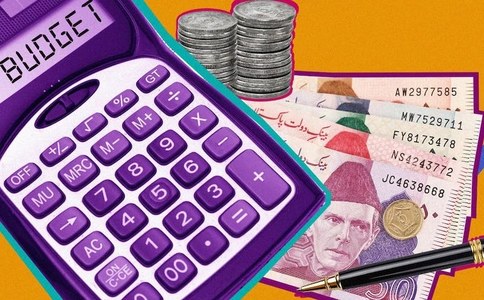COVID-19 has shattered the illusion of power and security that money and connections afforded to the elite, including the incompetent rent-seekers, in the pre-pandemic world. Those days are hopefully gone, at least for now.
The future, it appears, belongs to the innovative minds in the business class that trust the power of ideas more than tax breaks and concessions and are willing to make necessary adjustments and charge ahead with confidence to beat the competition on merit.
There is a perception that the pandemic has squeezed the economy so hard that it might have choked the system of patronage and pilferage, at least for now.
Sadly, the archaic mindset dominates the corridors of Corporate Pakistan. After the initial phases of shock, denial and depression, the focus is on socialising the losses. The reluctance to shake off the habit of looking towards the government more than the market has been blocking the natural progression towards higher productivity and strength. This again is understood to be distracting magnates and merchants from reinventing the business model that suits demands of the emerging post-pandemic world.
Currently, the discussions in the corporate circles continue to revolve around the failings of the budget to provide requisite support. They wished for complete freedom to inject funds to salvage businesses without declaring their source, exemption from labour laws to hire and fire at will, meaningful tax breaks, duty-free input and machinery imports, cuts in the energy cost and the availability of cheap land in industrial estates.
More than half of the top 150 CEOs considered the federal budget a non-event, according to a recent survey
The downward revision of the interest rate from 13.5 per cent to 7pc since March did not cheer them up. They mention the eroding value of the rupee against the dollar has escalated the cost of imported inputs. Some expressed doubts about the disbursement of over Rs100 billion concessional credit to finance the wage bill of idle employees during closures or partial operations.
A recent survey carried out by AB Core, a financial advisory firm, did provide some insight. It reached out to 150 top CEOs and leaders after the budget. Almost 60pc of them considered the federal budget a non-event while 27.5pc aired negative opinion. About 13pc of them supported it. Most respondents considered budgetary steps insufficient to deal with the health threat or the economic crisis.
One-fourth of the respondents thought the budget would hurt business and industry. For the year ahead, 58.6pc tycoons said the strategy thrust would be towards cost rationalisation. Almost 34pc said they would focus on growth. A majority (58pc) believes the economy will worsen over the year ahead. About 60pc said they were adversely affected, but 5pc reported to have capitalised on the situation.
The Pakistan Business Council (PBC) circulated a report in April on the corporate sector’s philanthropic initiatives aimed at alleviating the crushing impact of Covid-19 on society. But it has yet to report on the economic outlook as the crisis period stretches.
PBC CEO Ehsan Malik was mild while responding to the queries of Dawn. He said essential goods’ businesses remain confident of sustained demand as others, especially export-oriented firms, are allowed to operate under SOPs. He said the private sector aspires for cheaper credit. “Our members appreciate that the government had limited fiscal room to provide relief in the budget,” he commented in an email.
JBS CEO Viqar Islam, who heads multiple tech companies, was generally satisfied with the government’s response to the health crisis. But he was not satisfied with its handling of the economy. “They did not focus enough on preparing the economy for reopening,” he said. He supported the government’s current strategy of easing the lockdown restrictions while enforcing SOPs.
He called for a strong focus on digitising the economy and exploring new avenues of revenue growth by supporting the sectors with grater promise. He appreciated the rescheduling of business loans, but believed that waiving them off would have been better.
Ismail Sattar, president of the Employers’ Federation of Pakistan (EFP), mentioned companies going bust around the world in the midst of a global crisis. He believes it will affect their partners in Pakistan. To make a case for the easing of the suffocating regulatory framework and a sizeable incentive package for the private sector, he quoted the example of California under the Spanish flu. “California announced open policies for investors and gave them free land to set up industries with a 10-year tax holiday. Check the list of billionaires in the United States today. More than 50pc on the list hail from California. Why can’t Pakistan emulate to kick-start the activity and instil hope?” he asked.
“Come July and you will see another wave of retrenchments. It is tough for a manufacturing unit to re-commission after closure. Yet many had no choice but to shut their plants in the wake of a demand slump,” Majyd Aziz, former president of the EFP said. “The businessmen of Karachi had high expectations from the PTI government, but it failed them.”
The universality of the crisis, in his view, has contained the capital flight that could have been massive had there been options in the Middle East and Far East.
Published in Dawn, The Business and Finance Weekly, June 29th, 2020















































